Adam Bede
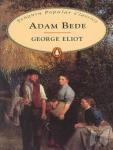
The first novel written by George Eliot (the pen name of Mary Ann Evans), was published in 1859. It was published pseudonymously, even though Evans was a well-published and highly respected scholar of her time. The novel has remained in print ever since, and is used in university studies of 19th century English literature.The story's plot follows four characters' rural lives in the fictional community of Hayslope—a rural, pastoral and close-knit community in 1799. The novel revolves around a love "rectangle" between beautiful but self-absorbed Hetty Sorrel, Captain Arthur Donnithorne, the young squire who seduces her, Adam Bede, her unacknowledged suitor, and Dinah Morris, Hetty's cousin, a fervent, virtuous and beautiful Methodist lay preacher. (The real village where Adam Bede was set is Ellastone on the Staffordshire / Derbyshire border, a few miles from Uttoxeter and Ashbourne, and near to Alton Towers. Eliot's father lived in the village as a carpenter in a substantial house now known as Adam Bede's Cottage).Adam is a local carpenter much admired for his integrity and intelligence, in love with Hetty. She is attracted to Arthur, the charming local squire's grandson and heir, and falls in love with him. When Adam interrupts a tryst between them, Adam and Arthur fight. Arthur agrees to give up Hetty and leaves Hayslope to return to his militia. After he leaves, Hetty Sorrel agrees to marry Adam but shortly before their marriage, discovers she is pregnant. In desperation, she leaves in search of Arthur. She cannot find him; unwilling to return to the village on account of the shame and ostracism she would have to endure, she delivers her baby with the assistance of a friendly woman she encounters. Later, the child is killed when she abandons it in a field. Not being able to bear the child's cries she tries to come back but she is too late when she finds out that it dies of exposure.Hetty is caught and tried for child murder. She is found guilty and sentenced to hang. Dinah enters the prison and pledges to stay with Hetty until the end. Her compassion brings about Hetty's contrite confession. When Arthur Donnithorne, on leave from the militia for his grandfather's funeral, hears of her impending execution, he races to the court and has the sentence commuted to transportation.Ultimately, Adam and Dinah, who gradually become aware of their mutual love, marry and live peacefully with his family.
Contents
- Book One Chapter 1 - The Workshop
- Book One Chapter 2 - The Preaching
- Book One Chapter 3 - After the Preaching
- Book One Chapter 4 - Home and Its Sorrows
- Book One Chapter 5 - The Rector
- Book One Chapter 6 - The Hall Farm
- Book One Chapter 7 - The Dairy
- Book One Chapter 8 - A Vocation
- Book One Chapter 9 - Hetty's World
- Book One Chapter 10 - Dinah Visits Lisbeth
Related Books
-
 Hospital SketchesLouisa May Alcott
Hospital SketchesLouisa May Alcott -
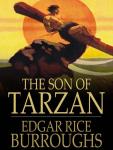 The Son of TarzanEdgar Rice Burroughs
The Son of TarzanEdgar Rice Burroughs -
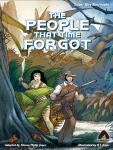 The People That Time ForgotEdgar Rice Burroughs
The People That Time ForgotEdgar Rice Burroughs -
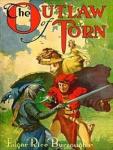 The Outlaw of TornEdgar Rice Burroughs
The Outlaw of TornEdgar Rice Burroughs -
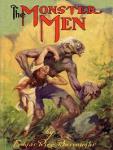 The Monster MenEdgar Rice Burroughs
The Monster MenEdgar Rice Burroughs -
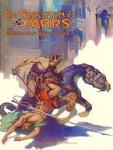 The Chessmen of MarsEdgar Rice Burroughs
The Chessmen of MarsEdgar Rice Burroughs -
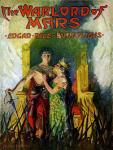 The Warlord of MarsEdgar Rice Burroughs
The Warlord of MarsEdgar Rice Burroughs -
 A Princess of MarsEdgar Rice Burroughs
A Princess of MarsEdgar Rice Burroughs
Author other works
-
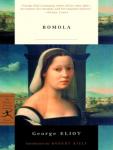
Romola
George Eliot
Florence, 1492: Christopher Columbus has sailed towards the New World, and Florence has just mourned the death of its legendary leader, Lorenzo de' Medici. In this setting, a Florentine trader meets a shipwrecked stranger, who introduces himself as Tito Melema, a young Italianate-Greek scholar. Tito becomes acquainted with several other Florentines, including Nello the barber and a young girl named Tessa. He is also introduced to a blind scholar named Bardo de' Bardi, and his daughter Romola. As Tito becomes settled in Florence, assisting Bardo with classical studies, he falls in love with Romola. However, Tessa falls in love with Tito, and the two are "married" in a mock ceremony.Tito learns from Fra Luca, a Dominican monk, that his adoptive father has been forced into slavery and is asking for assistance. Tito introspects, comparing filial duty to his new ambitions in Florence, and decides that it would be futile to attempt to rescue his adoptive father. This paves the way for Romola and Tito to marry. Fra Luca shortly thereafter falls ill and before his death he speaks to his estranged sister, Romola. Ignorant of Romola's plans, Fra Luca warns her of a vision foretelling a marriage between her and a mysterious stranger who will bring pain to her and her father. After Fra Luca's death, Tito dismisses the warning and advises Romola to trust him. Tito and Romola become betrothed at the end of Carnival, to be married at Easter after Tito returns from a visit to Rome.The novel then skips ahead to November 1494, more than eighteen months after the marriage. In that time, the French-Italian Wars have seen Florence enter uneasy times. Piero de' Medici, successor to the lordship of Florence, has been exiled from the city for his ignominious surrender to the invading French king, Charles VIII. Girolamo Savonarola preaches to Florentines about ridding the Church and the city of scourge and corruption. In this setting, Tito, now a valued member of Florentine society, participates in the reception for the French invaders. Tito encounters an escaped prisoner, who turns out to be his adopted father, Baldassare. Panicked and somewhat ashamed of his earlier inaction, Tito denies knowing the escaped prisoner and calls him a madman. Baldassare escapes into the Duomo, where he swears revenge on his unfilial adoptive son. Growing ever more fearful, Tito plans to leave Florence. To do this, he betrays his late father-in-law, Bardo, who died some months earlier, by selling the late scholar's library. This reveals to Romola the true nature of her husband's character. She secretly leaves Tito and Florence, but is persuaded by Savonarola to return to fulfil her obligations to her marriage and her fellow Florentines. Nevertheless, the love between Romola and Tito has gone.Again the action of the novel moves forward, from Christmas 1494 to October 1496. In that time, Florence has endured political upheaval, warfare and famine. Religious fervour has swept through Florence under the leadership of Savonarola, culminating in the Bonfire of the Vanities. The League of Venice has declared war on the French king and his Italian ally, Florence. Starvation and disease run rampant through the city. Romola, now a supporter of Savonarola, helps the poor and sick where she can. Meanwhile, Tito is embroiled in a complex game of political manoeuvring and duplicitous allegiances in the new Florentine government. Mirroring this, he has escaped attempts by Baldassare to both kill and expose him, and maintains a secret marriage to Tessa, with whom he has fathered two children. Romola becomes defiant of Tito, and the two manoeuvre to thwart each other's plans. Romola meets an enfeebled Baldassare, who reveals Tito's past and leads her to Tessa.Political turmoil erupts in Florence. Five supporters of the Medici family are sentenced to death, including Romola's godfather, Bernardo del Nero. She learns that Tito has played a role in their arrest. Romola pleads with Savonarola to intervene, but he refuses. Romola's faith in Savonarola and Florence is shaken, and once again she leaves the city. Meanwhile, Florence is under papal pressure to expel Savonarola. His arrest is effected by rioters, who then turn their attention to several of the city's political elite. Tito becomes a target of the rioters, but he escapes the mob by diving into the Arno River. However, upon leaving the river, Tito is killed by Baldassare.Romola makes her way to the coast. Emulating Gostanza in Boccacio's The Decameron (V, 2), she drifts out to sea in a small boat to die. However, the boat takes her to a small village affected by the Plague, and she helps the survivors. Romola's experience gives her a new purpose in life and she returns to Florence. Savonarola is tried for heresy and burned at the stake, but for Romola his influence remains inspiring. Romola takes care of Tessa and her two children, with the help of her older cousin. The story ends with Romola imparting advice to Tessa's son, based on her own experiences and the influences in her life.
-
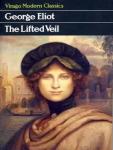
The Lifted Veil
George Eliot
This book is a novella by George Eliot, first published in 1859. Quite unlike the realistic fiction for which Eliot is best known, The Lifted Veil explores themes of extrasensory perception, the essence of physical life, possible life after death, and the power of fate.The unreliable narrator, Latimer, believes that he is cursed with an otherworldly ability to see into the future and the thoughts of other people. His unwanted "gift" seems to stem from a severe childhood illness he suffered while attending school in Geneva. Latimer is convinced of the existence of this power, and his two initial predictions do come true the way he has envisioned them: a peculiar "patch of rainbow light on the pavement" and a few words of dialogue appear to him exactly as expected. Latimer is revolted by much of what he discerns about others' motivations.Latimer becomes fascinated with Bertha, his brother's cold and coquettish fiancée, because her mind and motives remain atypically closed to him. After his brother's death, Latimer marries Bertha, but the marriage disintegrates as he recognizes Bertha's manipulative and untrustworthy nature. Latimer's friend, scientist Charles Meunier, performs a blood transfusion from himself to Bertha's recently deceased maid. For a few moments the maid comes back to life and accuses Bertha of a plot to poison Latimer. Bertha flees and Latimer soon dies as he had himself foretold at the start of the narrative.
-
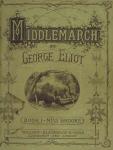
Middlemarch
George Eliot
Dorothea Brooke is an idealistic, well-to-do young woman, engaged in schemes to help the lot of the local poor. She is seemingly set for a comfortable, idle life as the wife of neighbouring landowner Sir James Chettam, but to the dismay of her sister, Celia (who later marries Chettam), and of her loquacious uncle Mr. Brooke, she marries instead Edward Casaubon, a middle-aged pedantic scholar who, she believes, is engaged on a great work, The Key to All Mythologies. She wishes to find fulfilment through sharing her husband’s intellectual life, but during an unhappy honeymoon in Rome she experiences his coldness towards her ambitions. Slowly she realises that his great project is doomed to failure and her feelings for him descend to pity. She forms a warm friendship with a young cousin of Casaubon’s, Will Ladislaw, but her husband’s antipathy towards him is clear (partly based on his belief that Ladislaw is trying to seduce Dorothea in order to gain access to Casaubon's fortune) and Ladislaw is forbidden to visit. In poor health, Casaubon attempts to extract from Dorothea a promise that, should he die, she will "avoid doing what I should deprecate and apply yourself to do what I desire" — meaning either that she should shun Ladislaw, or, as Dorothea believes, that she will complete The Key to All Mythologies in his place. Before Dorothea can give her reply, Casaubon dies. She then learns that he has added the extraordinary provision to his will that, if she should marry Ladislaw, Dorothea will lose her inheritance from Casaubon.Meanwhile, an idealistic young doctor, Tertius Lydgate, has arrived in Middlemarch, with advanced ideas for medical reform. His voluntary hospital work brings him into contact with the town’s financier, Mr. Bulstrode, who has philanthropic leanings, but who is also a religious zealot with a secret past. Bulstrode's niece is Rosamond Vincy, the mayor's daughter and the town's recognised beauty, who sets her sights on Lydgate, attracted by what she believes to be his aristocratic connections and his novelty. She wins him, but the disjunction between her self-centredness and his idealism ensures that their marriage is unhappy. Lydgate manages his financial affairs badly and he is soon deep in debt and has to seek help from Bulstrode. He is partly sustained emotionally in his marital and financial woes by his friendship with Camden Farebrother, the generous-spirited and engaging parson from a local parish.At the same time we have become acquainted with Rosamond's university-educated, restless, and somewhat irresponsible brother, Fred, reluctantly destined for the Church. He is in love with his childhood sweetheart, Mary Garth, a sensible and forthright young woman, who will not accept him until he abandons the Church (which she knows he has no interest in) and settles in a more suitable career. Mary has been the unwitting cause of Fred’s loss of a considerable fortune, bequeathed to him by the aged and irascible Mr. Featherstone, then rescinded by a later will which Featherstone, on his death-bed, begs Mary to destroy. Mary, unaware of what is at stake, refuses to do so. Fred, in trouble over some injudicious horse-dealing, is forced to borrow from Mary’s father, Caleb Garth, to meet his commitments. This humiliation shocks Fred into a reassessment of his life and he resolves to train as a land agent under the forgiving Caleb.These three interwoven narratives, with side-plots such as the disastrous though comedic attempt by Mr. Brooke to enter Parliament as a sponsor of Reform, are the basis of the story until it is well into its final third. Then a new thread emerges, with the appearance of John Raffles, who knows about Bulstrode’s past and is determined to exploit this knowledge. Bulstrode’s terror of public exposure as a hypocrite leads him to hasten the death of the mortally sick Raffles by giving him access to forbidden alcohol and excess amounts of opium. But he is too late; Raffles had already spread the word. Bulstrode’s disgrace engulfs the luckless Lydgate, as knowledge of the financier’s loan to the doctor becomes public, and he is assumed to be complicit with Bulstrode. Only Dorothea and Farebrother maintain faith in Lydgate, but Lydgate and Rosamond are threatened by the general opprobrium with the necessity of leaving Middlemarch. The disgraced and reviled Bulstrode’s only consolation is that his wife stands by him as he, too, faces exile.The final thread in the complex weave concerns Ladislaw, who, since their initial meeting, has kept his love for Dorothea to himself. He has remained in Middlemarch, working for Mr. Brooke, and has also become a focus for Rosamond’s treacherous attentions. After Brooke’s election campaign collapses, there is nothing to keep Ladislaw and he visits Dorothea to make his farewell. But Dorothea, released from life with Casaubon, but still the prisoner of his will, now sees Ladislaw as the means of her escape to a new life. Renouncing her independence, and Casaubon's fortune, she shocks her family again, by announcing she will marry Ladislaw. At the same time Fred, who has proved an apt pupil in Caleb’s profession, finally wins the approval and hand of Mary.Beyond the principal stories we are given constant glimpses into other scenes. We observe Featherstone’s avaricious relatives gathering for the spoils, visit Farebrother’s strange ménage, and become aware of enormous social and economic divides. But these are the backdrops for the main stories which, true to life, are left largely suspended, leaving a short finale to summarise the fortunes of our protagonists over the next thirty years or so. The book ends as it began, with Dorothea: "Her full nature [ . . . ] spent itself in channels which had no great name on the Earth. But the effect of her being on those around her was incalculably diffusive: for the growing good of the world is partly dependent on unhistoric acts."
-
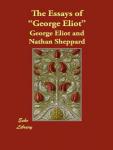
The Essays of
George Eliot
A selection of George Eliot's essays collected, arranged and with an introduction by Nathan Sheppard. First published in 1883.
-
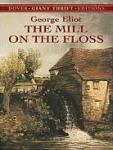
The Mill on the Floss
George Eliot
This is a novel by George Eliot (Mary Ann Evans), first published in three volumes in 1860 by William Blackwood.The novel details the lives of Tom and Maggie Tulliver, a brother and sister growing up at Dorlcote Mill on the River Floss at its junction with the more minor River Ripple near the village of St. Ogg's in Lincolnshire, England. Both the river and the village are fictional. The novel is most probably set in the 1820s - a number of historical references place the events in the book after the Napoleonic Wars but before the Reform Act of 1832.The novel spans a period of 10 to 15 years, from Tom’s and Maggie’s childhood up until their deaths in a flood on the Floss. The book is fictional autobiography in part, reflecting the disgrace that George Eliot (Mary Ann Evans) herself experienced while in a lengthy relationship with a married man, George Henry Lewes.Maggie Tulliver holds the central role in the book. The story begins when she is 9 years old, 13 years into her parent's marriage. Her relationship with her older brother Tom, and her romantic relationships with Philip Wakem, a hunchbacked, sensitive, and intellectual friend, and with Stephen Guest, a vivacious young socialite in St. Ogg's and assumed fiancé of Maggie’s cousin Lucy Deane, constitute the most significant narrative threads.Tom and Maggie have a close yet complex bond, which continues throughout the novel. Their relationship is coloured by Maggie's desire to recapture the unconditional love her father provides before his death. Tom’s pragmatic and reserved nature clashes with Maggie’s idealism and fervor for intellectual gains and experience. Various family crises, including bankruptcy, Mr. Tulliver’s rancorous relationship with Philip Wakem’s father, which results in the loss of the mill, and Mr. Tulliver’s untimely death, serve both to intensify Tom’s and Maggie’s differences and to highlight their love for each other. To help his father repay his debts, Tom leaves his school to enter a life of business. He eventually finds a measure of success, restoring the family’s former estate. Meanwhile Maggie languishes in the impoverished Tulliver home, her intellectual aptitude wasted in her socially isolated state. She passes through a period of intense spirituality, during which she renounces the world, spurred by Thomas à Kempis’s The Imitation of Christ.This renunciation is tested by a renewed friendship with Philip Wakem, with whom she had developed a friendship while he was a fellow pupil with Tom. Against the wishes of Tom and her father, who both despise the Wakems, Maggie secretly meets with Philip, and together they go for long walks through the woods. The relationship they forge is founded partially in Maggie’s heartfelt pity for broken and neglected human beings, as well as an outlet for her intellectual romantic desires. Philip’s and Maggie’s attraction is, in any case, inconsequential because of the family antipathy. Philip manages to coax a pledge of love from Maggie. When Tom discovers the relationship between the two, however, he forces his sister to renounce Philip, and with him her hopes of experiencing the broader, more cultured world he represents.Several more years pass, during which Mr. Tulliver dies. Lucy Deane invites Maggie to come and stay with her and experience the life of cultured leisure that she enjoys. This includes long hours conversing and playing music with Lucy's suitor, Stephen Guest, a prominent St. Ogg’s resident. Stephen and Maggie, against their rational judgments, become attracted to each other. The complication is further compounded by Philip Wakem’s friendship with Lucy and Stephen; he and Maggie are reintroduced, and Philip’s love for her is rekindled, while Maggie, no longer isolated, enjoys the clandestine attentions of Stephen Guest, putting her past professions for Philip in question. In the event Lucy intrigues to throw Philip and Maggie together on a short rowing trip down the Floss, but when Stephen unwittingly takes a sick Philip’s place, and Maggie and Stephen find themselves floating down the river, negligent of the distance they have covered, he proposes they board a passing boat to the next substantial city, Mudport, and get married. Maggie is too tired to argue about it. Stephen takes advantage of her weariness and hails the boat. They are taken on board the boat, and during the trip to Mudport, Maggie struggles between her love for Stephen and her duties to Philip and Lucy, contracted as it were in her past, when she was poor and isolated, and dependent on either of them for what good her life contained. Upon arrival in Mudport she rejects Stephen and makes her way back to St. Ogg's, where she lives for a brief period as an outcast, Stephen having fled to Holland. Although she immediately goes to Tom for forgiveness and shelter, he roughly sends her away, telling her that she will never again be welcome under his roof. Both Lucy and Philip forgive her, she in a moving reunion, he in an eloquent letter.Maggie’s brief exile ends when the river floods. The flood is considered by some to be a deus ex machina. Those who do not support this view cite the frequent references to flood as a foreshadowing which makes this natural occurrence less contrived. Having struggled through the waters in a boat to find Tom at the old mill, she sets out with him to rescue Lucy Deane and her family. In a brief tender moment, the brother and sister are reconciled from all past differences. When their boat capsizes, the two drown in an embrace, thus giving the book its Biblical epigraph, “In their death they were not divided."